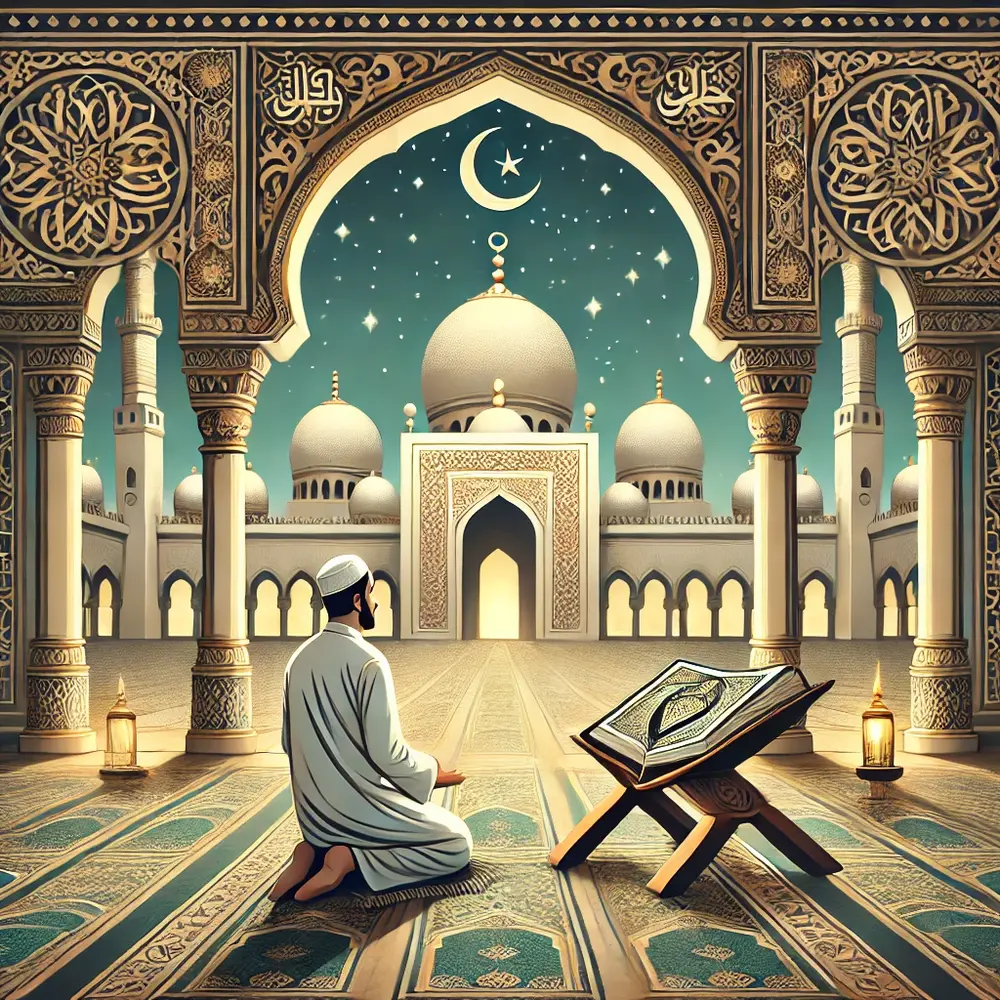Islam is a system that regulates both the spiritual and social life of an individual. It is built upon five main pillars: faith, prayer, fasting, zakat, and pilgrimage. In this article, we will focus specifically on the acts of worship such as prayer, fasting, zakat, charity, hajj, and umrah.
Prayer – A Bridge to the Creator
Prayer (salat) is the second pillar of Islam and is an obligation upon every Muslim to perform five times a day. It is a direct connection between the servant and Allah, purifying the soul and standing as one of the most important acts of worship in the religion. The Prophet (peace be upon him) said, "Prayer is the pillar of the religion." Each prayer distances a person from sin and bad habits, drawing them closer to God.
Fasting – Training the Self and Gateway to Mercy
Fasting (sawm) during the month of Ramadan is one of the obligatory acts of worship in Islam. It helps individuals control their desires, develop patience, and appreciate the blessings they possess. In the Qur’an, Allah says:
"O you who have believed, fasting is prescribed for you as it was prescribed for those before you that you may become righteous." (Surah Al-Baqarah, 2:183)
Fasting benefits physical health while also deeply enriching spiritual life. The prayers and acts of worship performed during Ramadan strengthen the hearts and spirits of Muslims.
Zakat – Material and Spiritual Purification
Zakat is an annual obligatory charity that Muslims who are financially able must pay from their wealth to support those in need. Zakat purifies one's possessions, increases blessings, and promotes social equality. The Qur’an states:
"Establish prayer, give zakat, and bow with those who bow [in worship]." (Surah Al-Baqarah, 2:43)
Zakat fosters generosity and solidarity, encouraging the wealthy to share with the less fortunate and building compassion within society.
Charity (Sadaqah) – The Joy of Giving
Charity (sadaqah) can be given by any Muslim, whether materially or through simple acts of kindness. It does not only involve money—smiling at someone, helping them, or offering kind words are all forms of sadaqah.
The Prophet Muhammad (peace be upon him) said:
"Charity does not decrease wealth. When one forgives, Allah elevates them."
Giving sadaqah brings reward in this life and the hereafter and plays a vital role in supporting the welfare of society.
Hajj – The Summit of Faith
Hajj is the fifth pillar of Islam and a once-in-a-lifetime obligation for Muslims who are physically and financially able. It is a chance to cleanse oneself from sins and grow closer to Allah.
The Prophet (peace be upon him) said:
"Whoever performs Hajj and avoids sins will return as pure as the day he was born."
During Hajj, pilgrims visit the Kaaba, pray on the plains of Arafat, and purify their souls. It symbolizes unity, brotherhood, and submission to God among Muslims from around the world.
Umrah – The Lesser Pilgrimage
Umrah is a non-mandatory pilgrimage that can be performed at any time of the year. Though not as obligatory as Hajj, it is highly rewarding. The Prophet (peace be upon him) said:
"The sins between one Umrah and the next are forgiven."
Umrah provides Muslims with the opportunity to experience the spiritual atmosphere of Mecca and witness the Kaaba with their own eyes.
Conclusion
These essential acts of worship in Islam shape a Muslim's relationship with both God and society. Prayer nourishes the soul, fasting teaches patience and self-control, zakat and charity encourage helping others, and Hajj and Umrah strengthen faith and unity.
By fulfilling these duties, a Muslim improves both their worldly life and their hereafter. May Allah make us among those who sincerely and correctly perform these acts of worship. Ameen.

